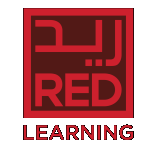The realm of Human Resources (HR) is often viewed as administrative and reactive. However, with the growing complexity of talent acquisition, development, and retention, HR needs a more strategic and project-oriented approach. Earning a Project Management Professional (PMP) certification equips HR managers with a powerful toolkit to transform their function and drive organizational success.
Sharpened Skills for HR Excellence:
- Project Management Framework: The PMP framework provides a structured approach to managing HR initiatives. This means clear project definitions, defined scope, and a focus on deliverables. HR can move beyond day-to-day tasks and focus on strategic talent management projects aligned with broader business goals.
- Risk Management: HR projects, like implementing a new performance management system or rolling out a new employee onboarding program, can be fraught with risks. PMP training equips HR managers to identify and mitigate potential risks proactively, ensuring project success.
- Stakeholder Management: HR interacts with a diverse group – from senior leadership to employees at all levels. PMP emphasizes effective communication and stakeholder engagement. HR managers can leverage this to build buy-in for HR initiatives and secure the resources needed for successful project execution.
- Time Management and Resource Allocation: HR departments often battle tight budgets and limited resources. PMP training instills strong time management and resource allocation skills. HR managers can optimize resource utilization and complete projects within timelines and budget constraints.
Transforming HR Initiatives:
- Strategic Talent Acquisition: Recruiting top talent is a complex project. A PMP-certified HR manager can:
- Develop a comprehensive talent acquisition strategy.
- Manage the recruitment process efficiently, from candidate sourcing to offer negotiations.
- Track key metrics and continuously refine the recruitment strategy for better results.
- Effective Onboarding: Onboarding is a crucial project for integrating new hires and fostering long-term engagement. With PMP skills, HR managers can:
- Design a structured onboarding program that provides new hires with the information and support they need to succeed.
- Manage logistics like documentation, training modules, and introductions to mentors.
- Measure the success of the onboarding program and make data-driven improvements.
- Performance Management Revolution: Performance reviews are often seen as a tedious task. PMP skills can transform this into a strategic project:
- Develop a performance management framework aligned with organizational goals.
- Manage the performance review process efficiently, ensuring fairness and effectiveness.
- Use data from performance reviews to identify training and development needs, leading to improved employee performance.
- Change Management Mastery: Organizational change can be challenging. A PMP-certified HR manager can:
- Develop a detailed change management plan with clear communication, training, and support strategies.
- Address resistance to change through open communication and employee engagement.
- Manage changes effectively to minimize disruption and maximize adoption.
Beyond Project Management:
- Improved Collaboration: The collaborative nature of project management translates well to the HR function. HR managers can foster better collaboration between HR teams, employees, and other departments, leading to smoother project execution and a more cohesive work environment.
- Data-Driven Decision Making: PMP emphasizes data analysis and reporting. HR managers can utilize these skills to collect and analyze data on HR initiatives, allowing them to make data-driven decisions and demonstrate the impact of HR programs on the organization’s success.
- Increased Credibility: The PMP certification signifies competence and expertise in project management. This can enhance the credibility of HR managers and ensure that their voice is heard at the leadership table.
Considerations and Implementation:
While the benefits are clear, there are factors to consider:
- Relevance to HR Role: The HR manager should identify HR initiatives that can benefit most from a project management approach.
- Workload Management: Taking on PMP training requires additional time and effort. Balancing this with existing responsibilities is crucial.
- Organizational Culture: For full impact, an organizational culture that embraces project management principles is optimal.
The Path to Success:
- PMP Certification: Earning the PMP requires training, project management experience, and passing an exam.
- Identifying Projects: HR managers should work with leadership to identify HR initiatives that can be managed using a project management framework.
- Collaboration: Working with project managers from other departments can provide valuable insights and best practices.
Conclusion:
An HR manager with a PMP certification is a powerful asset for any organization. Their ability to plan, manage, and deliver HR projects strategically contributes to a more efficient and effective HR function. This ultimately leads to a more engaged workforce, better




